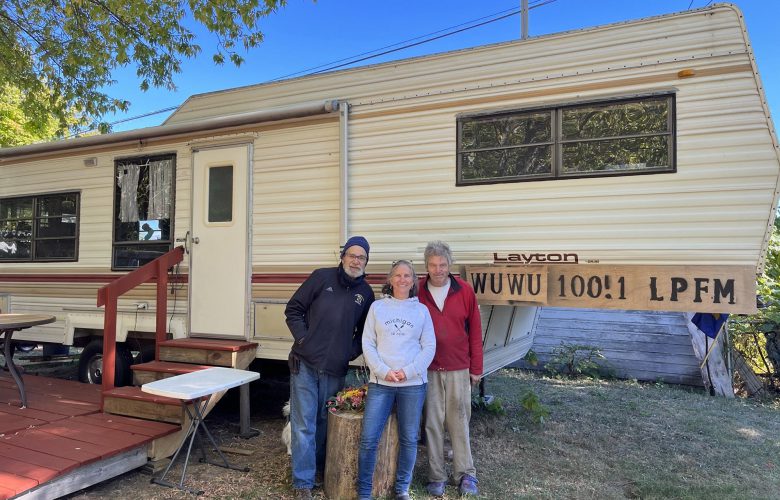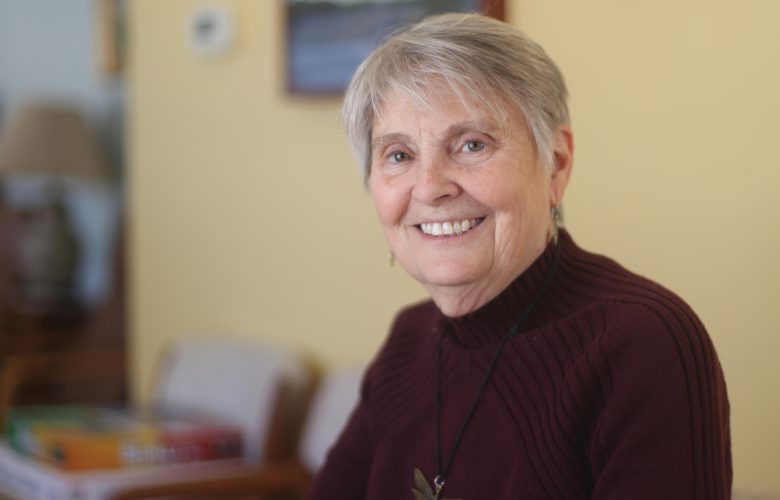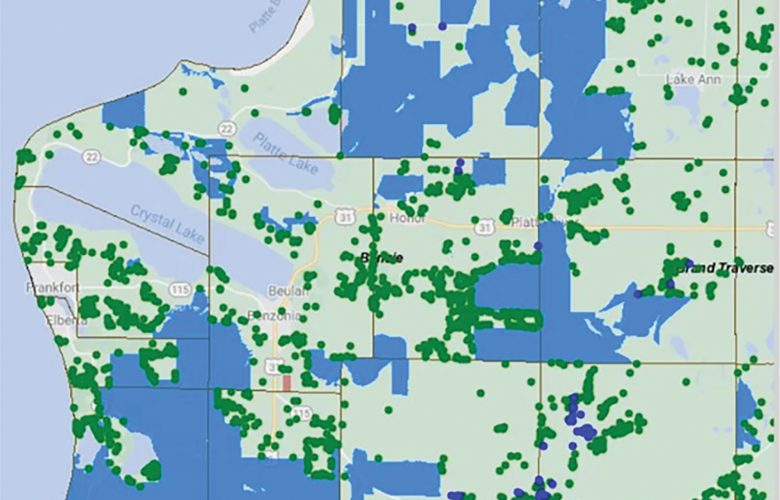A Benzie girl’s global mission to teach environmental education
By Susan Koenig
Current Contributor
Amalia Fernand has travelled. A lot, by anyone’s standards. In her relatively short life, she has visited and taught in 17 countries, including Uganda, Colombia, Costa Rica, Madagascar, Australia, Thailand, Mexico and Ethiopia, to name a few, not to mention Florida, New Mexico and other states in the USA.
Fernand founded Nature Explorers International (NEI), which teaches environmental education in communities around the world, via interactive stories, plays, songs, art projects and outdoor explorations. Her goal is to foster, in children, a deeper understanding and appreciation of their environment. “Every child everywhere is attracted to learning about his or her environment, no matter how poor they are, or what language they speak,” she observes.
Wherever she goes, Fernand brings art supplies, magnifying glasses, binoculars, bubbles, wildlife books and hole punchers (which children find especially fascinating). She uses art projects as a tool to spread awareness of the physical world that surrounds them (“Don’t eat the monkeys, save them”). Adults will listen to the children tell what they have learned in classes, and may actually be persuaded to protect species, plants and their physical world. This is particularly important in developing countries where the majority of the populations are unaware of the endangerment of species, degradation of environments, and the threat these problems pose to their lifestyles. Most of her students have never had much of their own, and cherish their artwork. “You can keep it,” Fernand tells them about the project, “but you must tell people what you learned when you made it.”
In November, Fernand heads to Kalimantan, the Indonesian side of Borneo which is the largest island in Indonesia’s vast chain, and home to more endemic species than anywhere in the world. She will work as an intern for Orangatan Foundation International (OFI) under the tutelage of Dr. Birute Galdikas, a Canadian primatologist of Lithuanian heritage, who is now an Indonesian citizen. Galdikas met Dr. Louis Leakey, the celebrated paleonanthropologist and archaeologist, in 1972. Recognizing her abilities, he sent her to Borneo to study the orangutan, considering her one of his “trimates”. (Jane Goodall, the noted chimpanzee expert, and Dian Fosse, the gorilla advocate who died at the hands of poachers, complete the trio.) The three women were also known as “Dr. Leakey’s angels” for their tireless research and efforts to save species and habitats.
Dr. Galdikas founded OFI in 1986 to establish a center of education, conservation and reforestation, but her passion was, and continues to be, the care center, established specifically to rescue orphaned babies whose mothers were shot by harvesters of palm oil or who might have died because of fires set by the timber estate developers. Hunters and poachers in the illegal animal trade also threaten the apes. Because they have the longest inter-birth interval of any animal — 6 to 10 years — they are more susceptible to extinction.
OFI currently houses about 330 of these large (an orangutan can weigh over 300 pounds) apes. The center hires only local people, who work one on one with the orphans. They take the babies into the forest and acclimatize them to their habitat, aiming to release them into the wild when they are mature. The most serious threat to the species is the destruction of the tropical rain forest, oldest in the world and essential to their survival.
To be chosen for this highly competitive position, Fernand submitted to an intense application process over nine months, including three Skype interviews, two long phone conversations with Galdikas, and several writing assignments. In addition to Fernand’s job as “communications volunteer,” there are two animal husbandry volunteers at the center and two personal intern/assistants to the doctor. Fernand will live in a village with a local family who will supply her meals for which she will pay a small stipend.
Amalia Celeste Fernand hails from a traveling family. Between her birth in Florida and her three-month birthday, she traveled with her parents to St. Thomas, VI, Massachusetts and Michigan and all states in between. Both her father Steven (known to us as the former “Shoe Man”) and her mother Diana, are adventurous souls who have managed frequent traveling all their lives, even while raising children. Both mother and father are artsy types, and you can guess where the leather for Amalia’s jewelry comes from.
By the time she turned five, the family had settled in Benzie County, but not for long. Fernand moved to Colorado with her sister and mom, and in her second year of high school, raised money to travel to Hawaii with a school group. She spent her 14th and 17th birthdays in Australia, one visit a family trip, the second as an exchange student. She helped finance those trips by making jewelry, and subsequently established her business, Amalia Fernand Leather Designs.
She graduated from Eckerd College in St. Petersburg, Fla., in 2003 with a major in Environmental Studies with minors in Anthropology and Marine Science, including a lot of courses in Primatology. “You always liked monkeys,” says her father, wryly. Eckerd required a three-week independent study program during the winter term, and Fernand took advantage of that to begin traveling and testing her teaching skills overseas. She also attended a work/study program at Boyd Hill, a nature reserve in St. Petersburg where she still teaches (when not traveling) in the winters. She traveled to Thailand for a month studying gibbons, and to Madagascar, where she was teaching about lemurs (and learning about malaria, first-hand).
From 2008 to 2010, she earned a Master’s Degree attending Leslie University, which required 225 days of living outdoors over three semesters throughout the United States and Mexico, plus a three-month internship in Costa Rica. This was an experiential program, teaching in three parts (1. What? 2. So what? 3. Now what?) to process experiences and clarify values.
Fernand learned that she prefers to teach younger children, who have “more absorbent minds” and are “more fun,” specifically children from ages 3-6. The “basic understanding of concepts” program that she teaches includes: plants and seeds; invertebrates; fish and sharks; reptiles and amphibians; birds and mammals. She works for Montessori in Traverse City, and occasionally holds classes here in Benzie County. After she completes her internship in Borneo, she hopes to travel around the world, teaching classes and writing a book about her adventures.
Borneo Bash
There’s no such thing as a free lunch, even when one is doing good work, and Fernand is looking for help to fund her trip. She will host a “Borneo Bash” on Nov. 1 at 4 p.m., which will include live music, a potluck dinner, and a “repurposed” leather sale of hand-made goods. See the Current’s calendar of events for details, and visit her website at NatureExplorersInternational.com.




